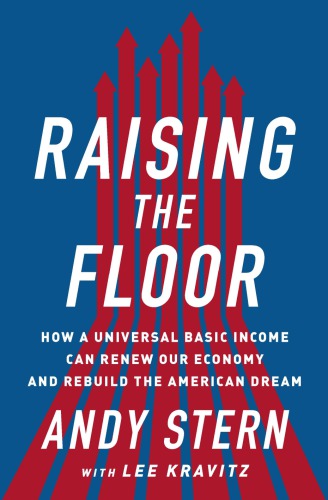
Raising the Floor
How a Universal Basic Income Can Renew Our Economy and Rebuild the American Dream
کتاب های مرتبط
- اطلاعات
- نقد و بررسی
- دیدگاه کاربران
نقد و بررسی

May 15, 2016
Want pie in the sky? How about convincing Americans to accept the "almost un-American" premise of a guaranteed income for all?It might not be so far-fetched, writes Stern (A Country that Works: Getting America Back on Track, 2006), former president of the Service Employees International Union. Libertarians have agitated for an annual grant to take the place of welfare, while conservatives ought to be on board with the thought that putting a universal basic income in place is a recipe for shrinking social service bureaucracies. As for progressives, it "helps fulfill their dream of ending poverty." Stern takes a rather roundabout way to get to his central argument, surveying the economy as it has been transformed by technology in the last few years. There are few warehouse jobs today compared to a decade ago, for instance, not just because of the financial collapse, but also because of inventorying techniques made possible only by advanced computers. These days, Kelly Services is responsible for placing not so much stenographers as substitute teachers, taking an onerous and hated job off the backs of already burdened school principals. The argument solidifies with the thesis offered by tech giant Andy Grove that "job creation must be the number one objective of state economic policy," and job creation follows from the entrepreneurialism unleashed by unencumbered funds. But how much, and how? The specifics are fewer than the diagnostics, but some of the ones that Stern proposes along the way are both interesting and ingenious--encourage offshore companies to return without undue tax penalty, for one, and then set aside some of the proceeds of normal business taxation to fund infrastructure improvements and more. But the overarching one, that of the UBI, is the most interesting of all, and the author does a solid job of making his case without waxing too wild-eyed. Stern's T-shirt slogan puts it well: "It's really not that complicated." Pipe dream it may be, but this is a book eminently worth talking about.
COPYRIGHT(2016) Kirkus Reviews, ALL RIGHTS RESERVED.

























دیدگاه کاربران